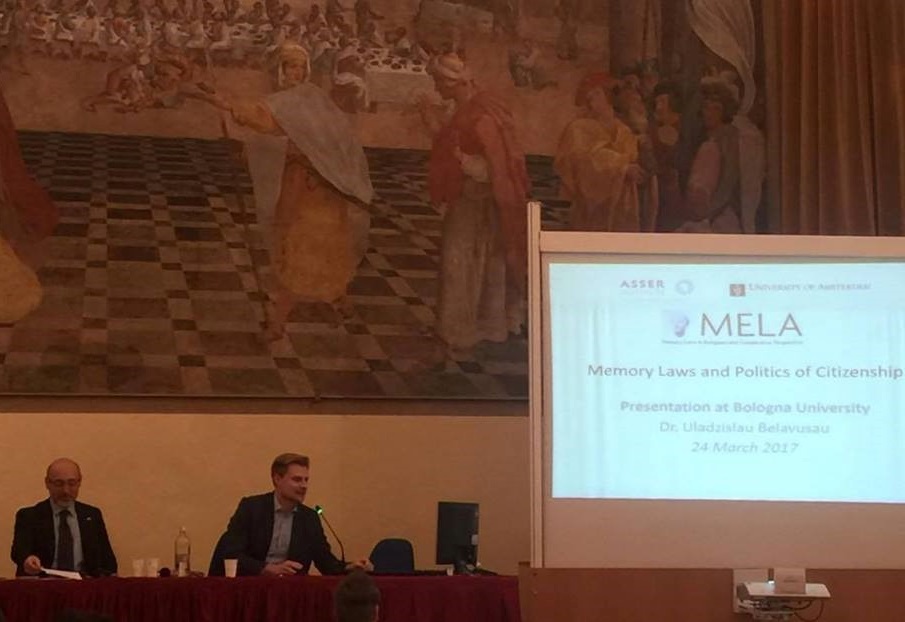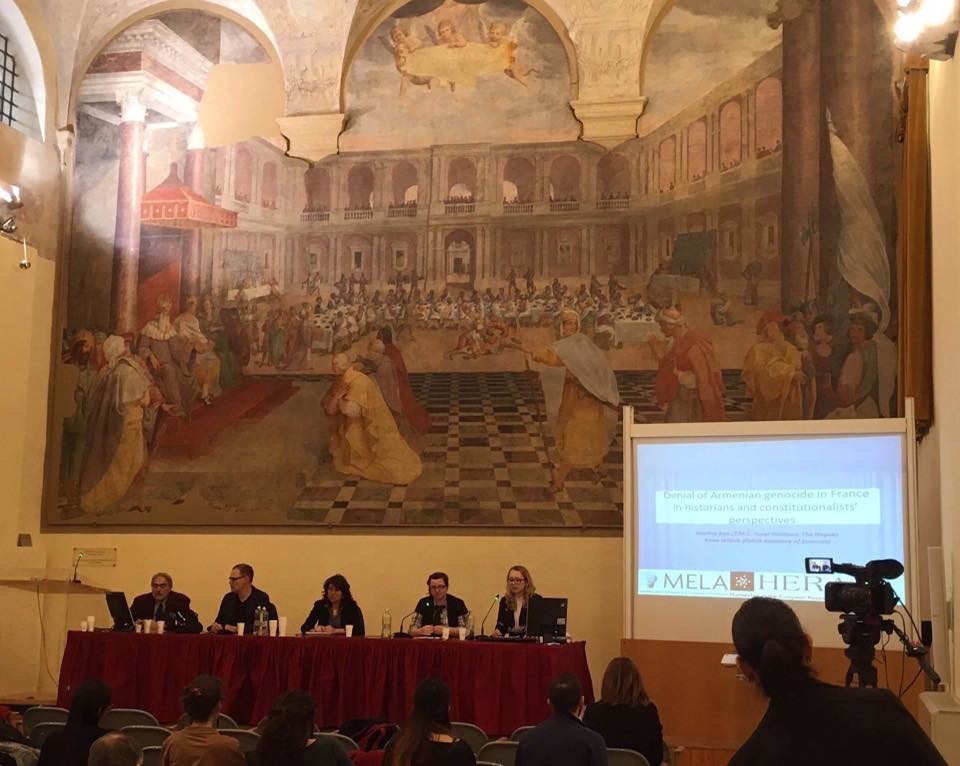The four-nation research consortium on Memory Laws in European and Comparative Perspectives (MELA) launched its first annual conference on 24 March 2017 at the University of Bologna, Italy. Focusing on Law and Memory in Established Democracies, the event showcased MELA’s extensive contributions to this topical and growing field. It also gathered an illustrious group of scholars and professionals alike to present their richly varied work on the legal governance of historical memory. MELA Principal Investigator, Dr. Emanuela Fronza (University of Bologna) hosted the proceedings, which began with introductory remarks by distinguished faculty from the University of Bologna and MELA’s Project Leader, Prof Eric Heinze (Queen Mary University of London). Explaining the significance of examining historical memory from a legal perspective, these informative introductions framed the multilayered issues addressed in the four panels that followed.
Addressing Law and Memory between International and Constitutional Law, the first session’s panelists assessed the uses of historical memory in international organizations. Dr Nena Tromp (University of Amsterdam) began the discussion by describing the importance of understanding historical contexts with respect to trials of mass atrocities, as she reflected on her own professional experiences during the trial of Slobodan Milosevic before the International Criminal Tribunal of Yugoslavia. MELA Principal Investigator, Dr Uladzislau Belavusau (T.M.C. Asser Institute – University of Amsterdam) considered how states govern memory through citizenship laws and policies, specifically within the framework of the European Union. Finally, Dr Stefania Parisi (University of Naples) presented a provocatively novel approach by interrogating the constitutionality of memory laws.

Moving on to Memories and Transitional Justice, the second set of panelists discussed a wide range of cases from a broad geographic swathe involving states in political transition. Prof José Luis De La Cuesta (University of the Basque Country) surveyed Spanish legislation on historical memory. Dr Paolo Caroli (University of Trento) gave his interpretation of the controversies surrounding the transitional experience of postwar Italy. Further on, Principal Investigator Dr Alexandra Gliszczyńska-Grabias (Polish Academy of Sciences) elaborated on the jurisprudence of the European Court of Human Rights, focusing specifically on the Court’s purported double-standards in its mnemonic treatment of Nazism and communism.
The third panel, History on Trial, integrated interdisciplinary perspectives to explore the manipulation of historical discourse in various contexts. Historian and filmmaker, Dr Christian Delage (Institut d’histoire du temps present, Paris) and Prof Marcello Flores (University of Siena) surveyed visual representations of historical trials. Employing a more conceptual approach, Prof Eric Heinze discussed normative theories about the regulation of historical knowledge. The panel ended with a joint presentation by MELA doctoral candidates, Marina Bán (T.M.C. Asser Institute – University of Amsterdam) and Anna Wójcik (Polish Academy of Sciences), who explained the evolution of genocide denial as a concept and its legal regulation in France.

The conference concluded with a panel devoted to Law, Memory and Truth highlighting the case of Latin America. Valeria Barbuto, Director of Memoria Abierta in Buenos Aires, began the session by elaborating on the institutionalization of memory in Argentina. Her talk was followed by Dr Raluca Grosescu’s (University of Exeter) comparative assessment of post-transitional investigations into justice and responsibility in Bulgaria and Paraguay. Dr Maria Chiara Campisi (University of Roma Tre) provided an overview of the contributions made by the Inter-American Court of Human Rights to cases of transitional justice. Finally, MELA postdoctoral researcher, Dr Grażyna Baranowska (Polish Academy of Sciences) spoke about the relationship of memory laws with the right to truth.
As the first academic conference devoted entirely to the intersection of law and memory, the event proved to be an immense collaborative success connecting scholars with legal practitioners and forging new paths toward future joint ventures. To that end, the conference will culminate in a special issue of the Journal of Comparative Law, co-edited by MELA researchers, Dr Nanor Kebranian and Piergiuseppe Parisi (forthcoming 2018), and including submissions by the conference participants. MELA will host another groundbreaking conference on law and memory next autumn (2018) in Warsaw, this time engaging transitional democracies as its primary theme.
